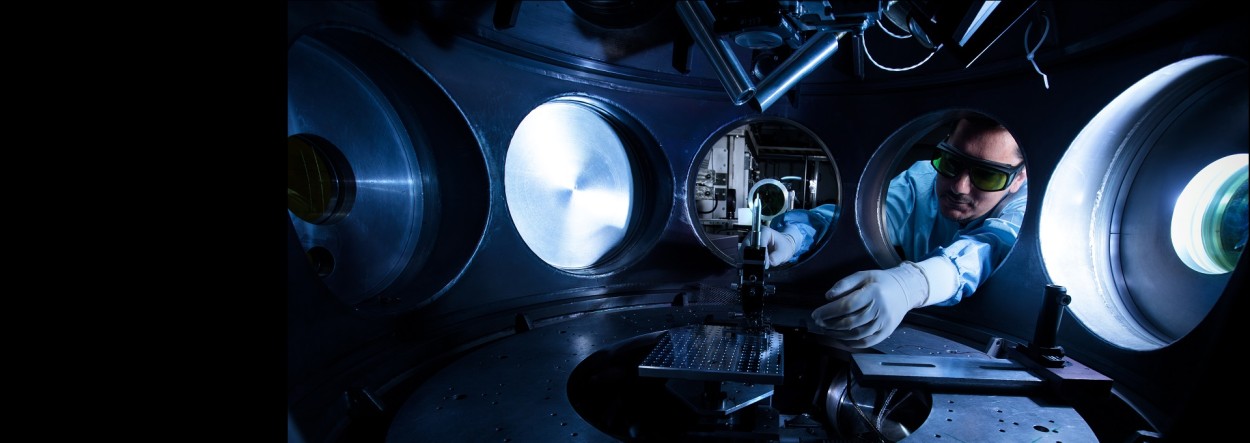Inauguration of GenF, in which École Polytechnique is a scientific partner
 Au Laboratoire pour l'Utilisation des Lasers Intenses (LULI)
Au Laboratoire pour l'Utilisation des Lasers Intenses (LULI)
École Polytechnique is one of the scientific partners, alongside the French Atomic Energy Commission (CEA) and the French National Center for Scientific Research (CNRS), of GenF, a company created in January 2025 by the Thales Group to develop and industrialize an inertial confinement nuclear fusion reactor.
The inauguration of the company's premises in Le Barp, south of Bordeaux, on May 15, 2025, was attended by representatives of the various stakeholders. GenF also benefits from the support of the Nouvelle-Aquitaine Regional Council—region that already brings together many areas of expertise in nuclear fusion, including the Centre Lasers Intenses et Applications (CELIA – CNRS/University of Bordeaux/CEA) and the Centre d’Études Scientifiques et Techniques d’Aquitaine (CESTA – CEA).
The company, which already employs a dozen researchers and engineers, is aiming to move from the Taranis research project on nuclear fusion by inertial confinement to the development and production of reactors using this technology, which, thanks to laser “bombardment” of a readily available fuel (Deuterium), can generate four times more energy than nuclear fission, for the same fuel load, by raising its temperature to 100 million degrees Celsius.
This development could benefit greatly from the close proximity of the CEA's Megajoule laser (LMJ) at Le Barp, currently the world's most powerful laser dedicated to military applications.
To ensure that France continues to be one of the pioneering countries in this field, in June 2023, as part of France 2030, the government launched a call for “innovative nuclear reactors” projects. Building on its expertise in high-power lasers, Thales presented the TARANIS project, in partnership with CEA, CNRS and École Polytechnique, to demonstrate the feasibility of designing the first inertial confinement nuclear fusion reactor.
This project was selected in February 2024, enabling it to benefit from a budget of 20 million euros for its first phase of development. To bring together the necessary complementary skills, Thales created the GenF company, officially launched in January 2025, and signed an initial contract worth several million euros for the development of its fusion laser.
Headed by Sébastien Le Pape, researcher and director of the Laboratory for the Use of Intense Lasers (LULI*), this chair aims to meet a high-level strategic and academic challenge for France's defense and energy policy.
*LULI : Intense Lasers Laboratory, a joint research unit CNRS, École Polytechnique - Institut Polytechnique de Paris, CEA, Sorbonne Université
 Support l'X
Support l'X